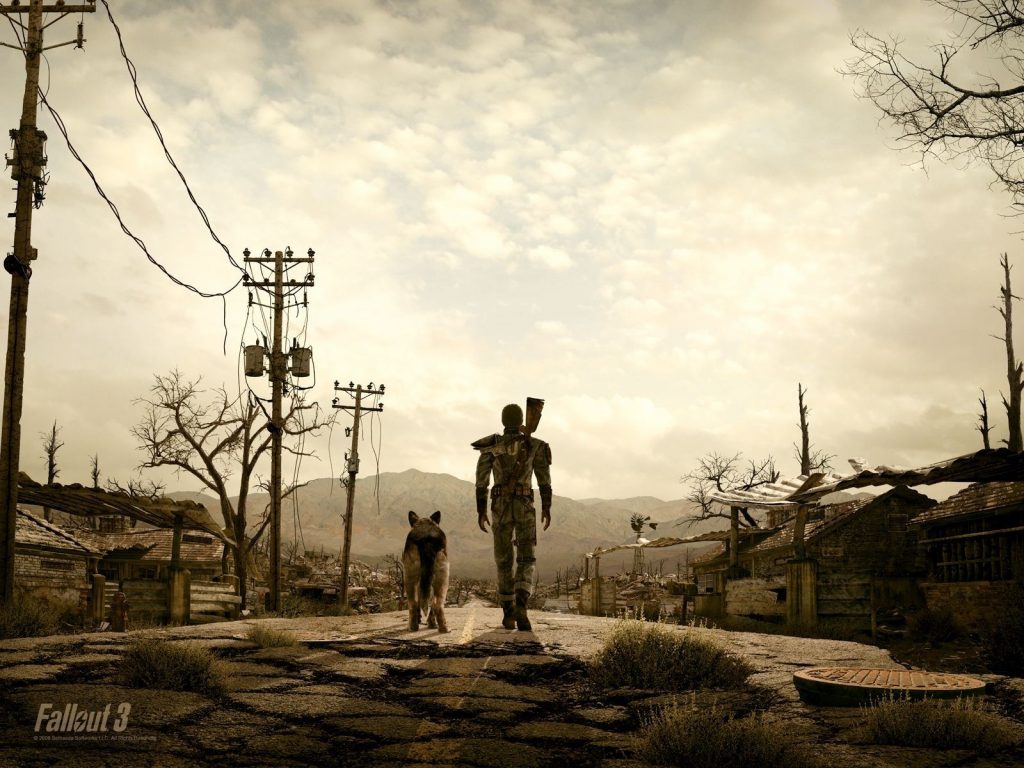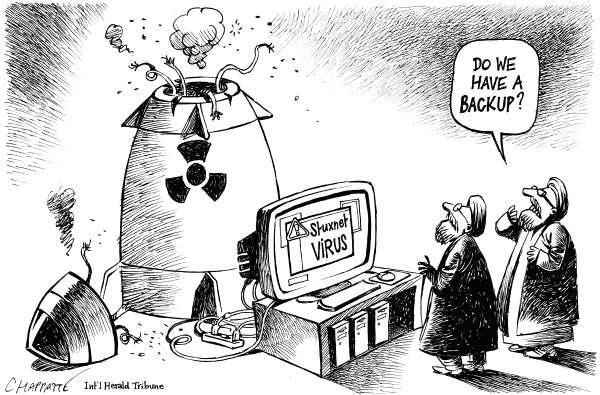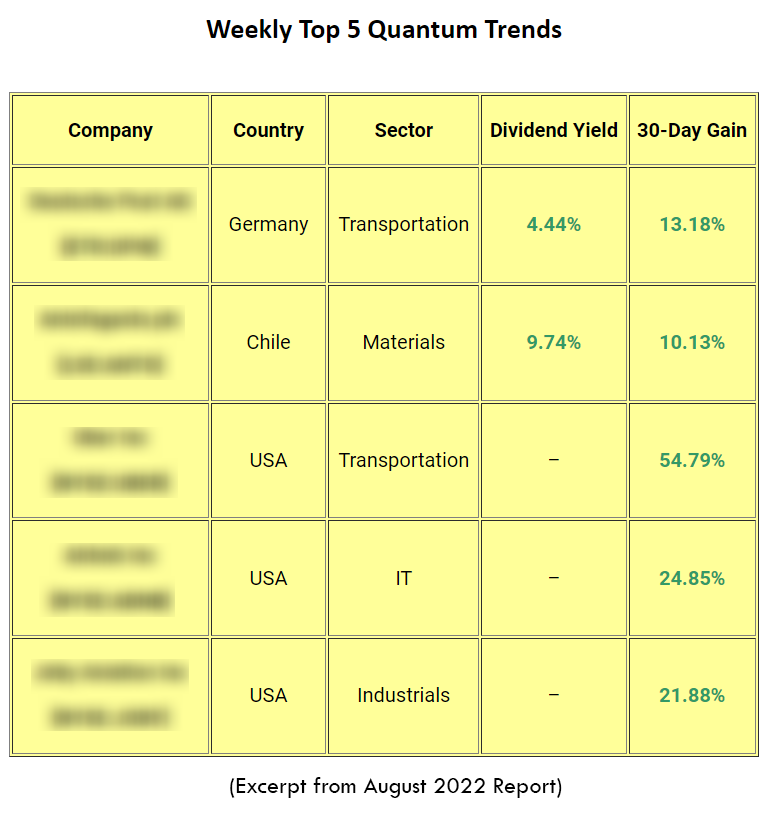Quantum Wealth Summary
- In the 21st century, we rely on technology for our day-to-day lives. It gives us comfort and convenience — but it’s also a source of vulnerability.
- Cyberspace will become the new theatre of conflict, where rival states will seek to exploit it for espionage, sabotage, and propaganda.
- One American company is at the forefront of Western cybersecurity. The stock price is currently up by 13% this past month. Could there be more upside to come?
- As a bonus: we also reveal our Weekly Top 5 Quantum Trends. These are the most impactful global opportunities that we are currently watching this week.
‘War. War never changes.’
The tone here is dry, cynical, and world-weary.
This pitch-perfect line is spoken by actor Ron Pearlman, which has appeared in almost every video game in the Fallout series since 1998.
In fact, this iconic introduction is the very first thing you hear when you start each new instalment of the game.
‘War. War never changes.’

Source: WallpaperBat
Fallout is a post-apocalyptic story set in the aftermath of a nuclear war. You wander the landscape of a shattered America, making friends, confronting enemies, scavenging for supplies as you struggle to eke out a living.
There’s no central government.
No law and order.
Just radiation and outlaws.
Fallout is basically Mad Max, but with a retro ‘50s feel.
Indeed, here’s what Wikipedia says:
Its atompunk retrofuturistic setting and art work are influenced by the post-war culture of 1950s United States, with its combination of hope for the promises of technology and the lurking fear of nuclear annihilation.
Fallout is entertainment. Very good entertainment. It entertains.
For dramatic impact, it focuses on the worst-case scenario: the total obliteration of society as we know it, courtesy of the Big Bomb.
It’s effective as a narrative device. It works because it taps into what we fear about war. And as a player, you can leap into the game without too much explanation. Its simplicity is its charm.
But here’s what Fallout gets wrong about the nature of war: it’s no longer about the Big Bomb.
Human conflict has actually changed.
It’s now more nuanced. More subtle. More complicated.
I wrote about this in my article about why total war has now evolved into limited war.
In 1962, President John F. Kennedy summed it up like this with prophetic words:
‘Korea has not been the only battle ground since the end of the Second World War. Men have fought and died in Malaya, in Greece, in the Philippines, in Algeria and Cuba, and Cyprus and almost continuously on the Indo-Chinese Peninsula. No nuclear weapons have been fired. No massive nuclear retaliation has been considered appropriate.
‘This is another type of war, new in its intensity, ancient in its origin — war by guerrillas, subversives, insurgents, assassins, war by ambush instead of by combat; by infiltration, instead of aggression, seeking victory by eroding and exhausting the enemy instead of engaging him. It is a form of warfare uniquely adapted to what has been strangely called ‘wars of liberation,’ to undermine the efforts of new and poor countries to maintain the freedom that they have finally achieved.
‘It preys on economic unrest and ethnic conflicts. It requires in those situations where we must counter it, and these are the kinds of challenges that will be before us in the next decade if freedom is to be saved, a whole new kind of strategy, a wholly different kind of force, and therefore a new and wholly different kind of military training.’
Kennedy was right.
The nature of human conflict has evolved.
We’re now experiencing war by subversion. War by infiltration. War by sabotage.

Source: Inquiries Journal
For example, in 2009, Israel and the United States apparently knocked out Iran’s ability to enrich uranium.
No, they didn’t do it by physically attacking the Iranian nuclear facility at Natanz. Instead, they did it virtually. They used a computer worm called Stuxnet to penetrate the systems at the plant.
Their target? The centrifuges used to enrich uranium gas. These were spun at higher-than-normal speeds — until they broke. The damage was extensive and successfully derailed Iran’s nuclear programme.
This event became known as Operation Olympic Games. The deployment of the world’s first state-sponsored cyberweapon. Could this be a preview of how war will be waged in the future?
Well, look past the headlines, and you will see that there’s a secret struggle now being fought between the West and its enemies. They are not using bullets and bombs. They are using digital code — to damaging effect.
Just think about it.
Power grids. Commercial airliners. Banking transactions.
- There are ‘black hats’ — malicious hackers — who spend all their time figuring out how to penetrate and damage the computer systems that control our critical infrastructure.
- Meanwhile, on the other side of the fence, there are ‘white hats’ — security specialists — who work tirelessly day and night to plug the holes and protect us from harm.
Indeed, the digital battlespace is heating up. An arms race is happening — over who can develop new cyberweapons, as well as new countermeasures.
Fortunately, we’ve got some pretty innovative people on our side.
For example, one American company is at the forefront of Western cybersecurity. The stock price is currently up by 13% this past month. Could there be more upside to come?
Also, as a bonus, we are revealing our Weekly Top 5 Quantum Trends. These are the most impactful global opportunities that we are currently watching this week…








John is the Chief Investment Officer at Wealth Morning. His responsibilities include trading, client service, and compliance. He is an experienced investor and portfolio manager, trading both on his own account and assisting with high net-worth clients. In addition to contributing financial and geopolitical articles to this site, John is a bestselling author in his own right. His international thrillers have appeared on the USA Today and Amazon bestseller lists.